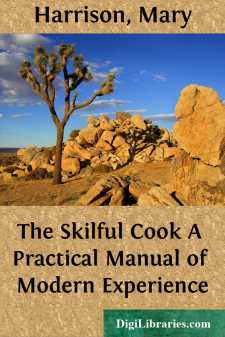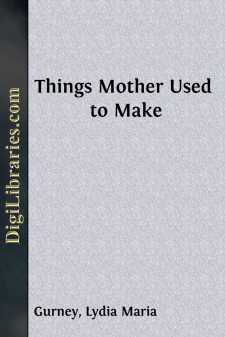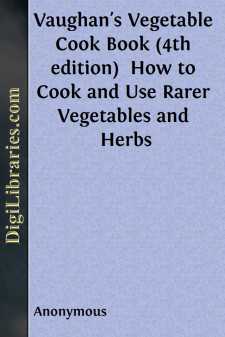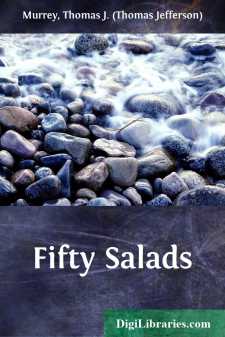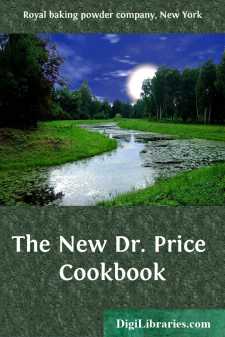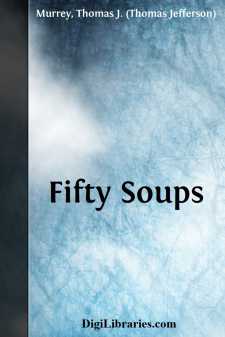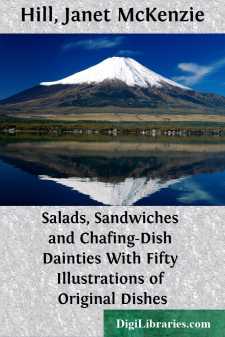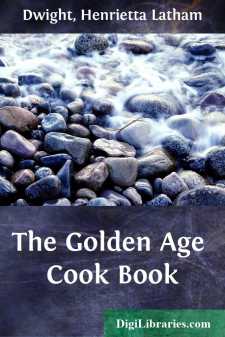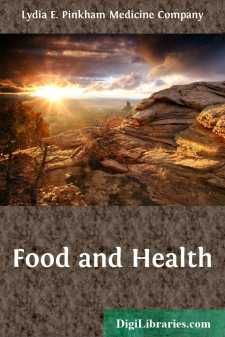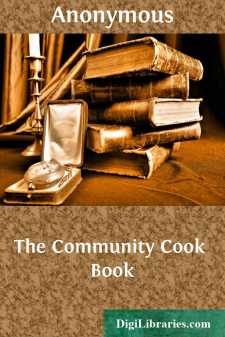Cooking
- General 70
- History 1
- Reference 10
- Regional & Ethnic 3
- Vegetarian 10
Cooking Books
Sort by:
by:
Mary Harrison
INTRODUCTION. The importance of every woman having a thorough knowledge of domestic economy cannot be too strongly insisted on. The false refinement which, of late years, has considered an acquaintance with domestic matters to be only suitable for servants, has been fraught with the most disastrous consequences. This may seem strong language, but it is not too strong. All sanitary reformers know well...
more...
=BREADS= =Bannocks= 1 Cupful of Thick Sour Milk 1/2 Cupful of Sugar 1 Egg 2 Cupfuls of Flour 1/2 Cupful of Indian Meal 1 Teaspoonful of Soda A pinch of Salt Make the mixture stiff enough to drop from a spoon. Drop mixture, size of a walnut, into boiling fat. Serve warm, with maple syrup. =Boston Brown Bread= 1 Cupful of Rye Meal 1 Cupful of Graham Meal 1 Cupful of Indian Meal 1...
more...
by:
Anonymous
The suggestions and recipes of this cook book have been gathering through the years from sources far and wide. Friends and neighbors have contributed, personal experience has offered its lessons, thrifty housekeepers in home departments of newspapers, reports of lectures, and recipes given to the newspaper world, from teachers in the science of cookery, have all added color or substance to what is...
more...
REMARKS ON SALADS. Of the many varieties of food daily consumed, none are more important than a salad, rightly compounded. And there is nothing more exasperating than an inferior one. The salad is the Prince of the Menu, and although a dinner be perfect in every other detail except the salad, the affair will be voted a failure if that be poor. It is therefore necessary for those contemplating...
more...
BREADS, BISCUITS AND ROLLS Dr. Price's Baking Powder may be used instead of yeast to leaven bread. It does precisely the same work; that is, raises the dough, making it porous and spongy. The great advantage of bread made by this method is in time saved, as it can be mixed and baked in less than two hours. Milk bread needs little or no shortening, and less flour is required than when water is...
more...
REMARKS ON SOUPS. Soups, like salads, present an excellent opportunity for the cook to display good taste and judgment. The great difficulty lies in selecting the most appropriate soup for each particular occasion; it would be well to first select your bill of fare, after which decide upon the soup. The season, and force of circumstances, may compel you to decide upon a heavy fish, such as salmon,...
more...
There is positive need of more widespread knowledge of the principles of cookery. Few women know how to cook an egg or boil a potato properly, and the making of the perfect loaf of bread has long been assigned a place among the "lost arts." By many women cooking is considered, at best, a homely art,—a necessary kind of drudgery; and the composition, if not the consumption, of salads and...
more...
Preface. I send this little book out into the world, first, to aid those who, having decided to adopt a bloodless diet, are still asking how they can be nourished without flesh; second, in the hope of gaining something further to protect “the speechless ones” who, having come down through the centuries under “the dominion of man,” have in their eyes the mute, appealing look of the helpless and...
more...
HINTS FOR MEALTIME How often do we hear women exclaim, "Oh dear, what shall I have for the next meal?" This little book will aid you in answering that troublesome question. The recipes are carefully selected and we hope you will find them helpful. More important to you than the question of food is that of health. Therefore, in this book we show you many letters from women who have received great...
more...
by:
Anonymous
FOREWORD The Community Cook Book is a collection of recipes chosen from many hundreds that may well be considered representative of the best to be found in any of the more intelligent and progressive of American Communities in which a part of the population make occasional visits to all parts of the country from which they bring back choice recipes to contribute to the neighborhood fund. Added to this,...
more...


